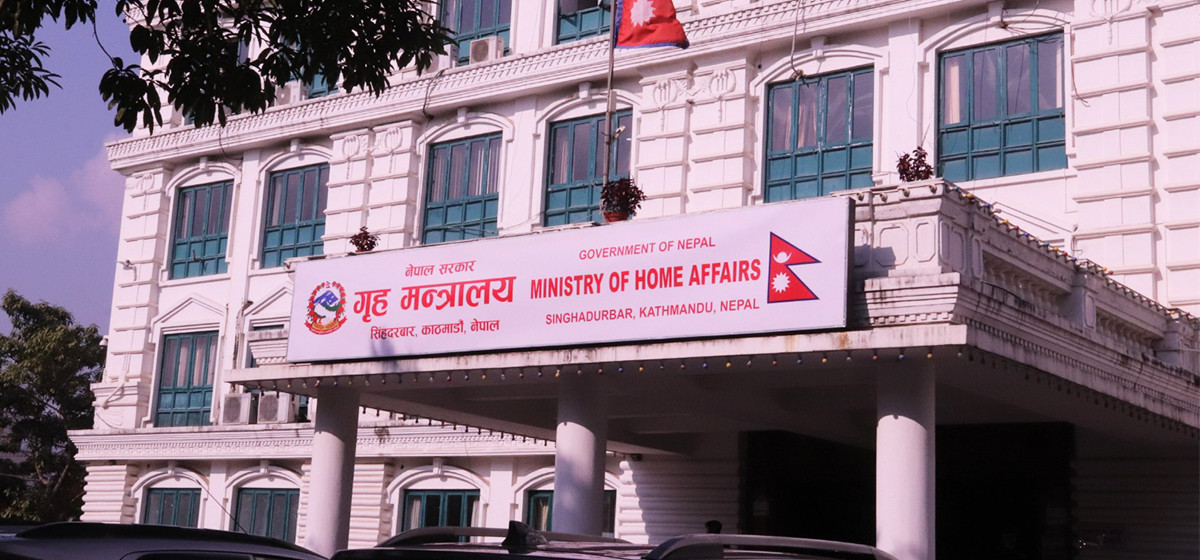Prime minister KP Sharma Oli, while addressing the 79th UNGA on 27th September 2024, said that Parliament has passed the transitional justice (TJ) bill to settle the issue ‘once for all’, referring to the third amendment of the Truth and Reconciliation Commission Act (TRC). While implementing the law he said, ‘we will uphold victims’ rights including truth and justice and use reparation and reconciliation to heal the wounds and scars of the conflict period’.
Nepal’s unwavering commitments to the TJ process, at the international forum, undoubtedly, is commendable. For eighteen years since the signing of the Comprehensive Peace Accord (CPA), following the ten years of armed conflict, no government heads ever miss reiterating their positions to complete it, credibly. The passing of the third amendment bill to ‘The Enforced Disappearances Enquiry, Truth and Reconciliation Commission Act 2014’on August 29, 2024, by the parliament, irrespective of prevailing gaps and ambiguities, is a milestone in moving the process ahead.
The international community, including the UN, welcomed the initiation of breaking the deadlock. Victims and the human rights community have also cautiously backed the passing of the bill giving the benefit of doubt, creating an environment to resume a credible process.
Following the promulgation of the constitution through a constituent assembly (CA) a decade ago, integration of the Maoist combatants into the Nepali Army and restructuring of the state, envisaged by the CPA, have been completed. But the final leg of the peace process, transitional justice, with the objectives of addressing truth, justice, reparation, and institutional reforms is in limbo, affected by vested political interests and power struggle.The major driving force of the TJ mechanisms, namely Truth and Reconciliation Commission (TRC) and Commission for Inquiry of the Enforced Disappeared People (CIEDP), failed to fulfill their mandate for a decade, due to significant political influence.
CDC urged to refrain from political influence

However, a five-member recommendation (search) committee was constituted on 18th October, for the third time, led by former chief justice Om Prakash Mishra with members, Manoj Dawadi representative of National Human Rights Commission (NHRC) chair Top Bahadur Magar, former Attorney General Kumba Bahadur Khati, former ambassador Arjun Karki and Stella Tamang, was tasked with selecting commissioners within two months. But, perceiving the sensitivity, it decided not to decide names with the majority and recommended the cabinet to restart the selection process, ending its term.
Though the committee was unsuccessful in picking credible people, it succeeded in protecting its independence and integrity, blocking wrong persons entering the commissions with petty political interest. This caused a few months’ delay but has prevented political interventions.
Unlike in the past, it refused to compromise, endorsing the political commands and refrained from shared failure. It virtually broke the conventional approach of installing the officials on the political deal among the top leaders of Nepali Congress (NC), United Marxist Leninist (UML) and Maoists.
Establishing credible commissions is, undoubtedly, a crucial task of the search committee. The TJ act also envisions it as a high-level body headed by former Supreme Court (SC) chief justice and the NHRC chair or his/her representative having other three qualified civil society individuals with a female representative as members. The two previous committees became rubber stamps, fulfilling a formality. The recruitments in successive commissions were done as listed by political leaders, wasting ten years of precious time, money and resources of the state, without yielding results.
However, the NHRC chair Magar’s representative Dawadi must be acknowledged, in preventing the interference of the political parties supported by chairperson Mishra, this time. He received much appreciation, unlike former NHRC chairperson Anup Raj Sharma, who followed the party line, ignoring the seriousness of the issue and the agony of the conflict victims.
The TRC and CIEDP commissions formed in the year 2015 and 2020 were not of much concern to the victims, human rights and international community, exercised on the faulty act, not meeting international standards and legitimacy. However, the victim groups took a position of being ‘critically engaged’ but that neither worked.
Nevertheless, after the implementation of the third TRC amendment act, a conducive environment has been crafted. But the prevailing unhealthy practice of political interference is a threat to derailing the stalled process. Senior political leaders’ erroneous notion of ‘political consensus’ enduring solution to every problem, including the TJ, is unfortunate. Significant engagement of the victims, right groups and international community, including the UN, for completing the task ‘once and for all’, is inevitable.
The ongoing TJ process cannot remain anymore in the trap of political supremacy. The impending ‘search committee’ must receive an environment to work freely and with conscience. Without delay, the process of selecting the ‘right person in the right place’ must be initiated, serving the overall purpose of fostering national harmony and completing ‘home-grown’ tasks for sustainable peace.
Failing to appoint commissioners has drawn serious concerns of the victims and rights groups. Victims have blamed political interference and their vested interest for not being able to select appropriate commissioners. Accountability watch committee (AWC) has drawn attention of the government not to delay the rights of victims to justice and reparation, under any pretext.
Amnesty International, Human Rights Watch and International Commission of Jurists jointly wrote a letter to the prime minister KP Sharma Oli on December 19th urging him to form a new committee without delay and revisit the approach, addressing the concern raised by the victims, survivors, Nepali civil society, and international organizations. Additionally, they strongly urged the PM and stakeholders to take decisive action to appoint and empower a new recommendation committee to complete the work of selecting commissioners, ensure a transparent process including wider consultations with stakeholders, and enable a process that leads to the appointment of independent, impartial and competent people in the commissions.



-1200x560-1772467693.webp)


































